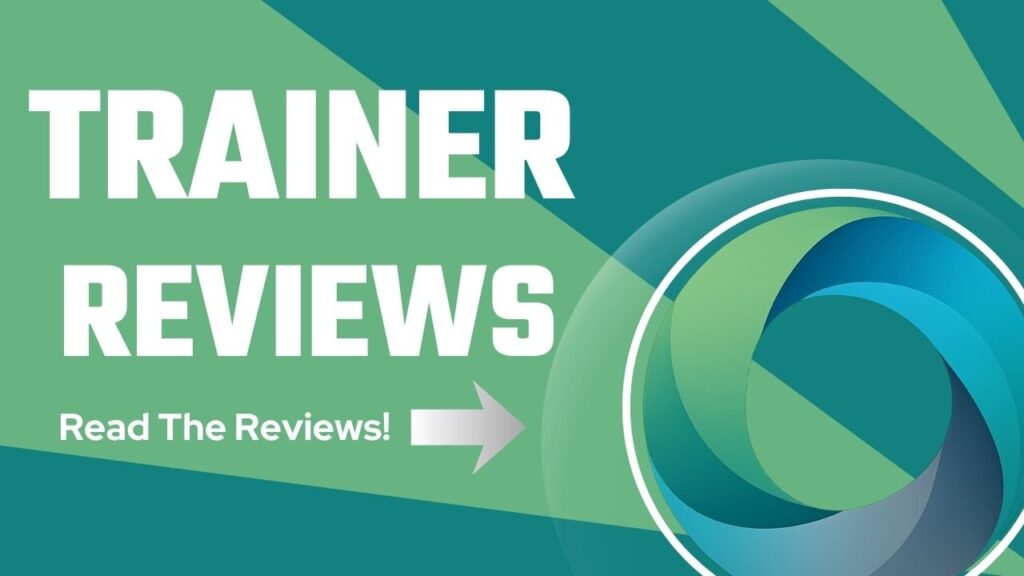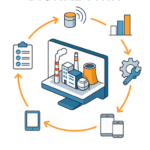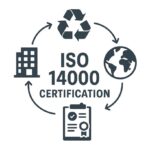LCA for Expert (Formerly "GaBi") Training Plan

LCA for Experts (GaBi) Training Plan
We offer tiered training plans for GaBi software, ranging from foundational to expert levels, to meet diverse learning needs in industry and academia. These plans progress sequentially, building upon previous knowledge. Each level starts with a foundational “Zero” base and advances to the designated proficiency. For example, the “Professional” plan begins with no prior LCA knowledge and develops expertise to a professional level. This structured approach is consistent across all plans.
Here’s a breakdown of the available plans:
- Basic: Ideal for beginners seeking a concise introduction to GaBi software and Life Cycle Assessment (LCA) principles. Suitable for students and those new to the field.
- Basic+: Expands upon the Basic plan, covering additional topics and providing a more comprehensive understanding of GaBi software.
- Professional: Recommended for sustainability analysts, PhD students, and academic researchers conducting LCA studies.
- Expert: Designed for independent consultants, advanced PhD students, researchers, LCA professionals, and R&D team members involved in sustainability analysis.
- Expert+: Tailored for R&D teams and firms offering sustainability consulting services. Highly recommended for expert-level PhD students and academic researchers.
This training program is offered remotely (online) via the Zoom app. We offer both one-on-one and group training. Pricing is per participant.
This training program is offered onsite and can be tailored to your company’s location outside Japan. We require a minimum number of participants. Pricing is per attendee. Please contact us for more information.
This off-site training program is conducted at DEISO in Tokyo. We require a minimum number of participants, and pricing is per attendee. Please contact us for more details.
For a comprehensive comparison of remote, on-site, and off-site training, please refer to this page.
Tip for Training Plans Comparison
Move your mouse cursor over any item of a plan with a dashed underline to check and read additional information with the “Feature Tooltip.”
Basic Training
Curriculum & Features
-
English Training Training is provided in English by an expert LCA trainer at the PhD level.
-
Fixable Training Scheduling Regardless of the Time Zone.
-
Extensive Training Intensive training for complete program understanding.
-
Accelerated Learning Approach Active learning approach accelerates understanding by tailoring instruction to individual styles, using discussions, interactive elements, demonstrations, practical examples, assignments, and trainee feedback.
-
Remote (Online) or in Person Choose your DEISO training delivery: online (remote), at your company's location in Japan, or international locations (overseas). Prices vary for each model, and a minimum number of trainees is required except for online training, which can be one-to-one- or one-to-group. A single trainee is sufficient for online training to deliver the chosen training program.
-
Training at the Client's Physical Location Outside of Japan Choose your DEISO training delivery: online (remote), at your company's location in Japan, or international locations (overseas). Prices vary for each model, and a minimum number of trainees is required except for online training, which can be one-to-one- or one-to-group. A single trainee is sufficient for online training to deliver the chosen training program.
-
In-Person Training at the Client's Physical Location in Japan A minimum number of trainees is required. Please contact us.
-
Case Studies: 1
-
Basic: LCA for Experts (GaBi) Modeling Principles Understand the LCA for Experts (GaBi) Modeling Principles, as these principles can differ between software platforms.
-
Advanced: LCA for Experts (GaBi) Modeling Principles Understand the LCA for Experts (GaBi) Modeling Principles, as these principles can differ between software platforms.
-
Gate-to-Gate Modeling
-
Cradle-to-Gate Modeling
-
Gate-to-Grave Modeling
-
Basic: Cradle-to-Grave Modelling The complete Life Cycle.
-
Advanced: Cradle-to-Grave Modelling The complete Life Cycle.
-
Credit Modeling of Energy Credit Modeling of Energy Recovery (power/electricity) and Thermal (heat).
-
Credit Modeling of Materials
-
Country Specific Electricity Grid Mix & Heat Modeling
-
End-of-Life (EoL) Modeling
-
Recycling Techniques (Paper, Plastic, Metals, etc.)
-
Transportation Modeling
-
Basic Modeling Techniques
-
Professional Modeling Techniques
-
Working with Microsoft Excel with GaBi Results
-
Compare Alternative Products/Technologies
-
Model's Local Parameters Discover how to parameterize your SimaPro model using local parameters to accommodate potential future data changes. Facilitate scenario analysis and development, support eco-design modeling, and compare different products and technologies. Learn how to incorporate these parameters into your models and update them as new data becomes available, enhancing flexibility and professionalism while saving valuable time.
-
Model's Global Parameters Discover how to parameterize your SimaPro model using global parameters to accommodate potential future data changes. Facilitate scenario analysis and development, support eco-design modeling, and compare different products and technologies. Learn how to incorporate these parameters into your models and update them as new data becomes available, enhancing flexibility and professionalism while saving valuable time.
-
LCA for Experts (GaBi) Analyst
-
Converting a Model to a System Process (LCI) Results
-
Allocation
-
LCA for Experts (GaBi) i-Report
-
Life Cycle Costing (LCC)
-
Life Cycle Working Environment (LCWE)
-
Monte Carlo Analysis/Uncertainty Theory Monte Carlo simulation, a key aspect of uncertainty analysis in LCA, involves repeatedly running models using random input values from specified probability distributions. This method accounts for uncertainties in LCA inputs and yields probability distributions of outputs, providing a comprehensive understanding of potential outcomes. By quantifying uncertainties, Monte Carlo simulation enhances the reliability of LCA results, facilitates informed decision-making, and improves the accuracy of environmental assessments, ultimately leading to more robust and defensible conclusions.
-
Monte Carlo Simulation/Uncertainty Analysis Monte Carlo simulation, a key aspect of uncertainty analysis in LCA, involves repeatedly running models using random input values from specified probability distributions. This method accounts for uncertainties in LCA inputs and yields probability distributions of outputs, providing a comprehensive understanding of potential outcomes. By quantifying uncertainties, Monte Carlo simulation enhances the reliability of LCA results, facilitates informed decision-making, and improves the accuracy of environmental assessments, ultimately leading to more robust and defensible conclusions.
-
Sensitivity Analysis Sensitivity analysis in LCA evaluates the impact of varying parameters on study outcomes, identifying influential factors and their effects on the results' reliability. Sensitivity analysis enhances the credibility and robustness of LCA findings by systematically testing input variables, such as data uncertainties or methodological choices. It enables stakeholders to understand the significance of assumptions and uncertainties, aiding informed decision-making in sustainable product development and policy formulation.
-
Scenario Analysis
-
Parameter Analysis
-
How to Import LCIA Results
-
Basic: GaBi Professional Database Training
-
Advanced: GaBi Professional Database Training
-
CO2/CH4 Emissions Anlysis Learn to analyze the two emissions contributing to climate change and product carbon footprint assessment: CO2 and CH4 emissions analysis.
-
GHG Emissions Learn how to conduct a comprehensive climate change assessment using various Life Cycle Impact Assessment (LCIA) methods.
-
Carbon Footprints
-
Use GaBi for Environmental Product Declaration (EPD)
-
Energy Analysis
-
Getting Started with LCA for Experts (GaBi) A detailed walkthrough of the LCA for Experts (GaBi) user-friendly interface and its functions menu is provided. The software panels ("panel-by-panel") are explained in detail. This module also covers common tasks such as creating new projects, opening existing ones, and exploring LCA for Experts' various functions. This includes understanding interface options, tools, data organization, and their overall structure. Productivity tips are also provided for using the main interface.
-
Flows, Quantities, Processes, and Plans
-
Process Search and Selection
-
Basic: Plans Management
-
Advanced: Plans Management
-
Basic: Process Technology Analysis Acquire the skills to conduct comprehensive "Process Technology Analysis" using LCA for Experts (GaBi) and Microsoft Excel, enabling the derivation of precise conclusions to inform decision-making effectively.
-
Advanced: Process Technology Analysis Acquire the skills to conduct comprehensive "Process Technology Analysis" using LCA for Experts (GaBi) and Microsoft Excel, enabling the derivation of precise conclusions to inform decision-making effectively.
-
Basic: Database Management
-
Advanced: Database Management
-
Professional Handling of Databases
-
Data Quality Management/Quality Assurance
-
Basic life Cycle Impact Assessment (LCIA) Methods
-
Advanced: Life Cycle Impact Assessment (LCIA) Methods
-
Basic: Mid-Point Modeling LCA results can be carried out at the midpoint level, including environmental impact categories such as "climate change," "acidification potential," "human health potential," etc. These categories (15+ on average based on the LCIA method) are called "midpoint impacts."
-
Advanced: Mid-Point Modeling LCA results can be carried out at the midpoint level, including environmental impact categories such as "climate change," "acidification potential," "human health potential," etc. These categories (15+ on average based on the LCIA method) are called "midpoint impacts."
-
Basic: End-Point Modeling LCA results can be carried out also at the "endpoint" level where the midpoint impact categories (15+ on average) can be aggregated to single 3-4 indicators such as "damage to the ecosystem," damage to health," and damage to resources." This aggregation is called "endpoint modeling."
-
Advanced: End-Point Modeling LCA results can be carried out also at the "endpoint" level where the midpoint impact categories (15+ on average) can be aggregated to single 3-4 indicators such as "damage to the ecosystem," damage to health," and damage to resources." This aggregation is called "endpoint modeling."
-
Basic: Process Documentation
-
Advanced: Process Documentation
-
Process Input/Output Mastering process input and output is crucial for comprehending the material and energy inputs and other inputs of each process, along with its main product and by-products of the outputs. This module will delve into understanding emissions to and from nature, the technosphere, and emissions mediums such as water, air, and soil. This training module will cover the practical application of these concepts to LCA for Experts (GaBi) processes.
-
Process Types "Unit", "Aggregated", & "Partially Aggregated" processes.
-
Basic: Building Custom Processes
-
Advanced: Building Custom Processes
-
Basic Dashboards Gain proficiency in viewing and analyzing the final collations of your model results. Master the skills to navigate, comprehend, and effectively utilize each results dashboard. This module focuses primarily on the fourth phase of the LCA: interpretation of the final results.
-
Advanced Dashboards Gain proficiency in viewing and analyzing the final collations of your model results. Master the skills to navigate, comprehend, and effectively utilize each results dashboard. This module focuses primarily on the fourth phase of the LCA: interpretation of the final results.
-
Balance Tools
-
Basic Hotspot (Weak-Point) Analysis With LCA for Experts (GaBi) & Microsoft Excel: Hotspot analysis, a fundamental aspect of Life Cycle Assessment (LCA), aids in pinpointing weak points or areas of concern within a product's life cycle. By identifying these hotspots, LCA practitioners can prioritize efforts to mitigate environmental impacts and optimize sustainability. This analysis enables stakeholders/LCA analysts to focus resources on improving processes or materials that contribute most significantly to ecological burdens, leading to more informed decision-making and ultimately fostering the development of more sustainable products and systems.
-
Advanced Hotspot (Weak-Point) Analysis With LCA for Experts (GaBi) & Microsoft Excel: Hotspot analysis, a fundamental aspect of Life Cycle Assessment (LCA), aids in pinpointing weak points or areas of concern within a product's life cycle. By identifying these hotspots, LCA practitioners can prioritize efforts to mitigate environmental impacts and optimize sustainability. This analysis enables stakeholders/LCA analysts to focus resources on improving processes or materials that contribute most significantly to ecological burdens, leading to more informed decision-making and ultimately fostering the development of more sustainable products and systems.
-
Creation of Custom Weighting Factors
-
Learn & Use all the LCIA Methods
-
Import and Export
-
Copy Assistant Training (Software Extension) Optional. Requires access to the "copy assistant" add-on/extension of LCA for Experts (GaBi).
-
Scenario & Eco-Design Modeling
-
Databases Maintenance
-
Updating, Maintaining & Troubleshooting GaBi
-
Professional Tips & Ticks for Professional use of LCA for Experts (GaBi)
Basic+ Training
Curriculum & Features
-
English Training Training is provided in English by an expert LCA trainer at the PhD level.
-
Fixable Training Scheduling Regardless of the Time Zone.
-
Extensive Training Intensive training for complete program understanding.
-
Accelerated Learning Approach Active learning approach accelerates understanding by tailoring instruction to individual styles, using discussions, interactive elements, demonstrations, practical examples, assignments, and trainee feedback.
-
Remote (Online) or in Person Choose your DEISO training delivery: online (remote), at your company's location in Japan, or international locations (overseas). Prices vary for each model, and a minimum number of trainees is required except for online training, which can be one-to-one- or one-to-group. A single trainee is sufficient for online training to deliver the chosen training program.
-
Training at the Client's Physical Location Outside of Japan Choose your DEISO training delivery: online (remote), at your company's location in Japan, or international locations (overseas). Prices vary for each model, and a minimum number of trainees is required except for online training, which can be one-to-one- or one-to-group. A single trainee is sufficient for online training to deliver the chosen training program.
-
In-Person Training at the Client's Physical Location in Japan A minimum number of trainees is required. Please contact us.
-
Case Studies: 1
-
Basic: LCA for Experts (GaBi) Modeling Principles Understand the LCA for Experts (GaBi) Modeling Principles, as these principles can differ between software platforms.
-
Advanced: LCA for Experts (GaBi) Modeling Principles Understand the LCA for Experts (GaBi) Modeling Principles, as these principles can differ between software platforms.
-
Gate-to-Gate Modeling
-
Cradle-to-Gate Modeling
-
Gate-to-Grave Modeling
-
Basic: Cradle-to-Grave Modelling The complete Life Cycle.
-
Advanced: Cradle-to-Grave Modelling The complete Life Cycle.
-
Credit Modeling of Energy Credit Modeling of Energy Recovery (power/electricity) and Thermal (heat).
-
Credit Modeling of Materials
-
Country Specific Electricity Grid Mix & Heat Modeling
-
End-of-Life (EoL) Modeling
-
Recycling Techniques (Paper, Plastic, Metals, etc.)
-
Transportation Modeling
-
Basic Modeling Techniques
-
Professional Modeling Techniques
-
Working with Microsoft Excel with GaBi Results
-
Compare Alternative Products/Technologies
-
Model's Local Parameters Discover how to parameterize your SimaPro model using local parameters to accommodate potential future data changes. Facilitate scenario analysis and development, support eco-design modeling, and compare different products and technologies. Learn how to incorporate these parameters into your models and update them as new data becomes available, enhancing flexibility and professionalism while saving valuable time.
-
Model's Global Parameters Discover how to parameterize your SimaPro model using global parameters to accommodate potential future data changes. Facilitate scenario analysis and development, support eco-design modeling, and compare different products and technologies. Learn how to incorporate these parameters into your models and update them as new data becomes available, enhancing flexibility and professionalism while saving valuable time.
-
LCA for Experts (GaBi) Analyst
-
Converting a Model to a System Process (LCI) Results
-
Allocation
-
LCA for Experts (GaBi) i-Report
-
Life Cycle Costing (LCC)
-
Life Cycle Working Environment (LCWE)
-
Monte Carlo Analysis/Uncertainty Theory Monte Carlo simulation, a key aspect of uncertainty analysis in LCA, involves repeatedly running models using random input values from specified probability distributions. This method accounts for uncertainties in LCA inputs and yields probability distributions of outputs, providing a comprehensive understanding of potential outcomes. By quantifying uncertainties, Monte Carlo simulation enhances the reliability of LCA results, facilitates informed decision-making, and improves the accuracy of environmental assessments, ultimately leading to more robust and defensible conclusions.
-
Monte Carlo Simulation/Uncertainty Analysis Monte Carlo simulation, a key aspect of uncertainty analysis in LCA, involves repeatedly running models using random input values from specified probability distributions. This method accounts for uncertainties in LCA inputs and yields probability distributions of outputs, providing a comprehensive understanding of potential outcomes. By quantifying uncertainties, Monte Carlo simulation enhances the reliability of LCA results, facilitates informed decision-making, and improves the accuracy of environmental assessments, ultimately leading to more robust and defensible conclusions.
-
Sensitivity Analysis Sensitivity analysis in LCA evaluates the impact of varying parameters on study outcomes, identifying influential factors and their effects on the results' reliability. Sensitivity analysis enhances the credibility and robustness of LCA findings by systematically testing input variables, such as data uncertainties or methodological choices. It enables stakeholders to understand the significance of assumptions and uncertainties, aiding informed decision-making in sustainable product development and policy formulation.
-
Scenario Analysis
-
Parameter Analysis
-
How to Import LCIA Results
-
Basic: GaBi Professional Database Training
-
Advanced: GaBi Professional Database Training
-
CO2/CH4 Emissions Anlysis Learn to analyze the two emissions contributing to climate change and product carbon footprint assessment: CO2 and CH4 emissions analysis.
-
GHG Emissions Learn how to conduct a comprehensive climate change assessment using various Life Cycle Impact Assessment (LCIA) methods.
-
Carbon Footprints
-
Use GaBi for Environmental Product Declaration (EPD)
-
Energy Analysis
-
Getting Started with LCA for Experts (GaBi) A detailed walkthrough of the LCA for Experts (GaBi) user-friendly interface and its functions menu is provided. The software panels ("panel-by-panel") are explained in detail. This module also covers common tasks such as creating new projects, opening existing ones, and exploring LCA for Experts' various functions. This includes understanding interface options, tools, data organization, and their overall structure. Productivity tips are also provided for using the main interface.
-
Flows, Quantities, Processes, and Plans
-
Process Search and Selection
-
Basic: Plans Management
-
Advanced: Plans Management
-
Basic: Process Technology Analysis Acquire the skills to conduct comprehensive "Process Technology Analysis" using LCA for Experts (GaBi) and Microsoft Excel, enabling the derivation of precise conclusions to inform decision-making effectively.
-
Advanced: Process Technology Analysis Acquire the skills to conduct comprehensive "Process Technology Analysis" using LCA for Experts (GaBi) and Microsoft Excel, enabling the derivation of precise conclusions to inform decision-making effectively.
-
Basic: Database Management
-
Advanced: Database Management
-
Professional Handling of Databases
-
Data Quality Management/Quality Assurance
-
Basic life Cycle Impact Assessment (LCIA) Methods
-
Advanced: Life Cycle Impact Assessment (LCIA) Methods
-
Basic: Mid-Point Modeling LCA results can be carried out at the midpoint level, including environmental impact categories such as "climate change," "acidification potential," "human health potential," etc. These categories (15+ on average based on the LCIA method) are called "midpoint impacts."
-
Advanced: Mid-Point Modeling LCA results can be carried out at the midpoint level, including environmental impact categories such as "climate change," "acidification potential," "human health potential," etc. These categories (15+ on average based on the LCIA method) are called "midpoint impacts."
-
Basic: End-Point Modeling LCA results can be carried out also at the "endpoint" level where the midpoint impact categories (15+ on average) can be aggregated to single 3-4 indicators such as "damage to the ecosystem," damage to health," and damage to resources." This aggregation is called "endpoint modeling."
-
Advanced: End-Point Modeling LCA results can be carried out also at the "endpoint" level where the midpoint impact categories (15+ on average) can be aggregated to single 3-4 indicators such as "damage to the ecosystem," damage to health," and damage to resources." This aggregation is called "endpoint modeling."
-
Basic: Process Documentation
-
Advanced: Process Documentation
-
Process Input/Output Mastering process input and output is crucial for comprehending the material and energy inputs and other inputs of each process, along with its main product and by-products of the outputs. This module will delve into understanding emissions to and from nature, the technosphere, and emissions mediums such as water, air, and soil. This training module will cover the practical application of these concepts to LCA for Experts (GaBi) processes.
-
Process Types "Unit", "Aggregated", & "Partially Aggregated" processes.
-
Basic: Building Custom Processes
-
Advanced: Building Custom Processes
-
Basic Dashboards Gain proficiency in viewing and analyzing the final collations of your model results. Master the skills to navigate, comprehend, and effectively utilize each results dashboard. This module focuses primarily on the fourth phase of the LCA: interpretation of the final results.
-
Advanced Dashboards Gain proficiency in viewing and analyzing the final collations of your model results. Master the skills to navigate, comprehend, and effectively utilize each results dashboard. This module focuses primarily on the fourth phase of the LCA: interpretation of the final results.
-
Balance Tools
-
Basic Hotspot (Weak-Point) Analysis With LCA for Experts (GaBi) & Microsoft Excel: Hotspot analysis, a fundamental aspect of Life Cycle Assessment (LCA), aids in pinpointing weak points or areas of concern within a product's life cycle. By identifying these hotspots, LCA practitioners can prioritize efforts to mitigate environmental impacts and optimize sustainability. This analysis enables stakeholders/LCA analysts to focus resources on improving processes or materials that contribute most significantly to ecological burdens, leading to more informed decision-making and ultimately fostering the development of more sustainable products and systems.
-
Advanced Hotspot (Weak-Point) Analysis With LCA for Experts (GaBi) & Microsoft Excel: Hotspot analysis, a fundamental aspect of Life Cycle Assessment (LCA), aids in pinpointing weak points or areas of concern within a product's life cycle. By identifying these hotspots, LCA practitioners can prioritize efforts to mitigate environmental impacts and optimize sustainability. This analysis enables stakeholders/LCA analysts to focus resources on improving processes or materials that contribute most significantly to ecological burdens, leading to more informed decision-making and ultimately fostering the development of more sustainable products and systems.
-
Creation of Custom Weighting Factors
-
Learn & Use all the LCIA Methods
-
Import and Export
-
Copy Assistant Training (Software Extension) Optional. Requires access to the "copy assistant" add-on/extension of LCA for Experts (GaBi).
-
Scenario & Eco-Design Modeling
-
Databases Maintenance
-
Updating, Maintaining & Troubleshooting GaBi
-
Professional Tips & Ticks for Professional use of LCA for Experts (GaBi)
Professional Training
Curriculum & Features
-
English Training Training is provided in English by an expert LCA trainer at the PhD level.
-
Fixable Training Scheduling Regardless of the Time Zone.
-
Free 2 hours after training follow-up Optional.
-
Extensive Training Intensive training for complete program understanding.
-
Accelerated Learning Approach Active learning approach accelerates understanding by tailoring instruction to individual styles, using discussions, interactive elements, demonstrations, practical examples, assignments, and trainee feedback.
-
Remote (Online) or in Person Choose your DEISO training delivery: online (remote), at your company's location in Japan, or international locations (overseas). Prices vary for each model, and a minimum number of trainees is required except for online training, which can be one-to-one- or one-to-group. A single trainee is sufficient for online training to deliver the chosen training program.
-
Training at the Client's Physical Location Outside of Japan Choose your DEISO training delivery: online (remote), at your company's location in Japan, or international locations (overseas). Prices vary for each model, and a minimum number of trainees is required except for online training, which can be one-to-one- or one-to-group. A single trainee is sufficient for online training to deliver the chosen training program.
-
In-Person Training at the Client's Physical Location in Japan A minimum number of trainees is required. Please contact us.
-
Case Studies: 2
-
Basic: LCA for Experts (GaBi) Modeling Principles Understand the LCA for Experts (GaBi) Modeling Principles, as these principles can differ between software platforms.
-
Advanced: LCA for Experts (GaBi) Modeling Principles Understand the LCA for Experts (GaBi) Modeling Principles, as these principles can differ between software platforms.
-
Gate-to-Gate Modeling
-
Cradle-to-Gate Modeling
-
Gate-to-Grave Modeling
-
Basic: Cradle-to-Grave Modelling The complete Life Cycle.
-
Advanced: Cradle-to-Grave Modelling The complete Life Cycle.
-
Credit Modeling of Energy Credit Modeling of Energy Recovery (power/electricity) and Thermal (heat).
-
Credit Modeling of Materials
-
Country Specific Electricity Grid Mix & Heat Modeling
-
End-of-Life (EoL) Modeling
-
Recycling Techniques (Paper, Plastic, Metals, etc.)
-
Transportation Modeling
-
Basic Modeling Techniques
-
Professional Modeling Techniques
-
Working with Microsoft Excel with GaBi Results
-
Compare Alternative Products/Technologies
-
Model's Local Parameters Discover how to parameterize your SimaPro model using local parameters to accommodate potential future data changes. Facilitate scenario analysis and development, support eco-design modeling, and compare different products and technologies. Learn how to incorporate these parameters into your models and update them as new data becomes available, enhancing flexibility and professionalism while saving valuable time.
-
Model's Global Parameters Discover how to parameterize your SimaPro model using global parameters to accommodate potential future data changes. Facilitate scenario analysis and development, support eco-design modeling, and compare different products and technologies. Learn how to incorporate these parameters into your models and update them as new data becomes available, enhancing flexibility and professionalism while saving valuable time.
-
LCA for Experts (GaBi) Analyst
-
Converting a Model to a System Process (LCI) Results
-
Allocation
-
LCA for Experts (GaBi) i-Report
-
Life Cycle Costing (LCC)
-
Life Cycle Working Environment (LCWE)
-
Monte Carlo Analysis/Uncertainty Theory Monte Carlo simulation, a key aspect of uncertainty analysis in LCA, involves repeatedly running models using random input values from specified probability distributions. This method accounts for uncertainties in LCA inputs and yields probability distributions of outputs, providing a comprehensive understanding of potential outcomes. By quantifying uncertainties, Monte Carlo simulation enhances the reliability of LCA results, facilitates informed decision-making, and improves the accuracy of environmental assessments, ultimately leading to more robust and defensible conclusions.
-
Monte Carlo Simulation/Uncertainty Analysis Monte Carlo simulation, a key aspect of uncertainty analysis in LCA, involves repeatedly running models using random input values from specified probability distributions. This method accounts for uncertainties in LCA inputs and yields probability distributions of outputs, providing a comprehensive understanding of potential outcomes. By quantifying uncertainties, Monte Carlo simulation enhances the reliability of LCA results, facilitates informed decision-making, and improves the accuracy of environmental assessments, ultimately leading to more robust and defensible conclusions.
-
Sensitivity Analysis Sensitivity analysis in LCA evaluates the impact of varying parameters on study outcomes, identifying influential factors and their effects on the results' reliability. Sensitivity analysis enhances the credibility and robustness of LCA findings by systematically testing input variables, such as data uncertainties or methodological choices. It enables stakeholders to understand the significance of assumptions and uncertainties, aiding informed decision-making in sustainable product development and policy formulation.
-
Scenario Analysis
-
Parameter Analysis
-
How to Import LCIA Results
-
Basic: GaBi Professional Database Training
-
Advanced: GaBi Professional Database Training
-
CO2/CH4 Emissions Anlysis Learn to analyze the two emissions contributing to climate change and product carbon footprint assessment: CO2 and CH4 emissions analysis.
-
GHG Emissions Learn how to conduct a comprehensive climate change assessment using various Life Cycle Impact Assessment (LCIA) methods.
-
Carbon Footprints
-
Use GaBi for Environmental Product Declaration (EPD)
-
Energy Analysis
-
Getting Started with LCA for Experts (GaBi) A detailed walkthrough of the LCA for Experts (GaBi) user-friendly interface and its functions menu is provided. The software panels ("panel-by-panel") are explained in detail. This module also covers common tasks such as creating new projects, opening existing ones, and exploring LCA for Experts' various functions. This includes understanding interface options, tools, data organization, and their overall structure. Productivity tips are also provided for using the main interface.
-
Flows, Quantities, Processes, and Plans
-
Process Search and Selection
-
Basic: Plans Management
-
Advanced: Plans Management
-
Basic: Process Technology Analysis Acquire the skills to conduct comprehensive "Process Technology Analysis" using LCA for Experts (GaBi) and Microsoft Excel, enabling the derivation of precise conclusions to inform decision-making effectively.
-
Advanced: Process Technology Analysis Acquire the skills to conduct comprehensive "Process Technology Analysis" using LCA for Experts (GaBi) and Microsoft Excel, enabling the derivation of precise conclusions to inform decision-making effectively.
-
Basic: Database Management
-
Advanced: Database Management
-
Professional Handling of Databases
-
Data Quality Management/Quality Assurance
-
Basic life Cycle Impact Assessment (LCIA) Methods
-
Advanced: Life Cycle Impact Assessment (LCIA) Methods
-
Basic: Mid-Point Modeling LCA results can be carried out at the midpoint level, including environmental impact categories such as "climate change," "acidification potential," "human health potential," etc. These categories (15+ on average based on the LCIA method) are called "midpoint impacts."
-
Advanced: Mid-Point Modeling LCA results can be carried out at the midpoint level, including environmental impact categories such as "climate change," "acidification potential," "human health potential," etc. These categories (15+ on average based on the LCIA method) are called "midpoint impacts."
-
Basic: End-Point Modeling LCA results can be carried out also at the "endpoint" level where the midpoint impact categories (15+ on average) can be aggregated to single 3-4 indicators such as "damage to the ecosystem," damage to health," and damage to resources." This aggregation is called "endpoint modeling."
-
Advanced: End-Point Modeling LCA results can be carried out also at the "endpoint" level where the midpoint impact categories (15+ on average) can be aggregated to single 3-4 indicators such as "damage to the ecosystem," damage to health," and damage to resources." This aggregation is called "endpoint modeling."
-
Basic: Process Documentation
-
Advanced: Process Documentation
-
Process Input/Output Mastering process input and output is crucial for comprehending the material and energy inputs and other inputs of each process, along with its main product and by-products of the outputs. This module will delve into understanding emissions to and from nature, the technosphere, and emissions mediums such as water, air, and soil. This training module will cover the practical application of these concepts to LCA for Experts (GaBi) processes.
-
Process Types "Unit", "Aggregated", & "Partially Aggregated" processes.
-
Basic: Building Custom Processes
-
Advanced: Building Custom Processes
-
Basic Dashboards Gain proficiency in viewing and analyzing the final collations of your model results. Master the skills to navigate, comprehend, and effectively utilize each results dashboard. This module focuses primarily on the fourth phase of the LCA: interpretation of the final results.
-
Advanced Dashboards Gain proficiency in viewing and analyzing the final collations of your model results. Master the skills to navigate, comprehend, and effectively utilize each results dashboard. This module focuses primarily on the fourth phase of the LCA: interpretation of the final results.
-
Balance Tools
-
Basic Hotspot (Weak-Point) Analysis With LCA for Experts (GaBi) & Microsoft Excel: Hotspot analysis, a fundamental aspect of Life Cycle Assessment (LCA), aids in pinpointing weak points or areas of concern within a product's life cycle. By identifying these hotspots, LCA practitioners can prioritize efforts to mitigate environmental impacts and optimize sustainability. This analysis enables stakeholders/LCA analysts to focus resources on improving processes or materials that contribute most significantly to ecological burdens, leading to more informed decision-making and ultimately fostering the development of more sustainable products and systems.
-
Advanced Hotspot (Weak-Point) Analysis With LCA for Experts (GaBi) & Microsoft Excel: Hotspot analysis, a fundamental aspect of Life Cycle Assessment (LCA), aids in pinpointing weak points or areas of concern within a product's life cycle. By identifying these hotspots, LCA practitioners can prioritize efforts to mitigate environmental impacts and optimize sustainability. This analysis enables stakeholders/LCA analysts to focus resources on improving processes or materials that contribute most significantly to ecological burdens, leading to more informed decision-making and ultimately fostering the development of more sustainable products and systems.
-
Creation of Custom Weighting Factors
-
Learn & Use all the LCIA Methods
-
Import and Export
-
Copy Assistant Training (Software Extension) Optional. Requires access to the "copy assistant" add-on/extension of LCA for Experts (GaBi).
-
Scenario & Eco-Design Modeling
-
Databases Maintenance
-
Updating, Maintaining & Troubleshooting GaBi
-
Professional Tips & Ticks for Professional use of LCA for Experts (GaBi)
Expert Training
Curriculum & Features
-
English Training Training is provided in English by an expert LCA trainer at the PhD level.
-
Fixable Training Scheduling Regardless of the Time Zone.
-
Extensive Training Intensive training for complete program understanding.
-
Accelerated Learning Approach Active learning approach accelerates understanding by tailoring instruction to individual styles, using discussions, interactive elements, demonstrations, practical examples, assignments, and trainee feedback.
-
Remote (Online) or in Person Choose your DEISO training delivery: online (remote), at your company's location in Japan, or international locations (overseas). Prices vary for each model, and a minimum number of trainees is required except for online training, which can be one-to-one- or one-to-group. A single trainee is sufficient for online training to deliver the chosen training program.
-
Training at the Client's Physical Location Outside of Japan Choose your DEISO training delivery: online (remote), at your company's location in Japan, or international locations (overseas). Prices vary for each model, and a minimum number of trainees is required except for online training, which can be one-to-one- or one-to-group. A single trainee is sufficient for online training to deliver the chosen training program.
-
In-Person Training at the Client's Physical Location in Japan A minimum number of trainees is required. Please contact us.
-
Case Studies: 3
-
Basic: LCA for Experts (GaBi) Modeling Principles Understand the LCA for Experts (GaBi) Modeling Principles, as these principles can differ between software platforms.
-
Advanced: LCA for Experts (GaBi) Modeling Principles Understand the LCA for Experts (GaBi) Modeling Principles, as these principles can differ between software platforms.
-
Gate-to-Gate Modeling
-
Cradle-to-Gate Modeling
-
Gate-to-Grave Modeling
-
Basic: Cradle-to-Grave Modelling The complete Life Cycle.
-
Advanced: Cradle-to-Grave Modelling The complete Life Cycle.
-
Credit Modeling of Energy Credit Modeling of Energy Recovery (power/electricity) and Thermal (heat).
-
Credit Modeling of Materials
-
Country Specific Electricity Grid Mix & Heat Modeling
-
End-of-Life (EoL) Modeling
-
Recycling Techniques (Paper, Plastic, Metals, etc.)
-
Transportation Modeling
-
Basic Modeling Techniques
-
Professional Modeling Techniques
-
Working with Microsoft Excel with GaBi Results
-
Compare Alternative Products/Technologies
-
Model's Local Parameters Discover how to parameterize your SimaPro model using local parameters to accommodate potential future data changes. Facilitate scenario analysis and development, support eco-design modeling, and compare different products and technologies. Learn how to incorporate these parameters into your models and update them as new data becomes available, enhancing flexibility and professionalism while saving valuable time.
-
Model's Global Parameters Discover how to parameterize your SimaPro model using global parameters to accommodate potential future data changes. Facilitate scenario analysis and development, support eco-design modeling, and compare different products and technologies. Learn how to incorporate these parameters into your models and update them as new data becomes available, enhancing flexibility and professionalism while saving valuable time.
-
LCA for Experts (GaBi) Analyst
-
Converting a Model to a System Process (LCI) Results
-
Allocation
-
LCA for Experts (GaBi) i-Report
-
Life Cycle Costing (LCC)
-
Life Cycle Working Environment (LCWE)
-
Monte Carlo Analysis/Uncertainty Theory Monte Carlo simulation, a key aspect of uncertainty analysis in LCA, involves repeatedly running models using random input values from specified probability distributions. This method accounts for uncertainties in LCA inputs and yields probability distributions of outputs, providing a comprehensive understanding of potential outcomes. By quantifying uncertainties, Monte Carlo simulation enhances the reliability of LCA results, facilitates informed decision-making, and improves the accuracy of environmental assessments, ultimately leading to more robust and defensible conclusions.
-
Monte Carlo Simulation/Uncertainty Analysis Monte Carlo simulation, a key aspect of uncertainty analysis in LCA, involves repeatedly running models using random input values from specified probability distributions. This method accounts for uncertainties in LCA inputs and yields probability distributions of outputs, providing a comprehensive understanding of potential outcomes. By quantifying uncertainties, Monte Carlo simulation enhances the reliability of LCA results, facilitates informed decision-making, and improves the accuracy of environmental assessments, ultimately leading to more robust and defensible conclusions.
-
Sensitivity Analysis Sensitivity analysis in LCA evaluates the impact of varying parameters on study outcomes, identifying influential factors and their effects on the results' reliability. Sensitivity analysis enhances the credibility and robustness of LCA findings by systematically testing input variables, such as data uncertainties or methodological choices. It enables stakeholders to understand the significance of assumptions and uncertainties, aiding informed decision-making in sustainable product development and policy formulation.
-
Scenario Analysis
-
Parameter Analysis
-
How to Import LCIA Results
-
Basic: GaBi Professional Database Training
-
Advanced: GaBi Professional Database Training
-
CO2/CH4 Emissions Anlysis Learn to analyze the two emissions contributing to climate change and product carbon footprint assessment: CO2 and CH4 emissions analysis.
-
GHG Emissions Learn how to conduct a comprehensive climate change assessment using various Life Cycle Impact Assessment (LCIA) methods.
-
Carbon Footprints
-
Use GaBi for Environmental Product Declaration (EPD)
-
Energy Analysis
-
Getting Started with LCA for Experts (GaBi) A detailed walkthrough of the LCA for Experts (GaBi) user-friendly interface and its functions menu is provided. The software panels ("panel-by-panel") are explained in detail. This module also covers common tasks such as creating new projects, opening existing ones, and exploring LCA for Experts' various functions. This includes understanding interface options, tools, data organization, and their overall structure. Productivity tips are also provided for using the main interface.
-
Flows, Quantities, Processes, and Plans
-
Process Search and Selection
-
Basic: Plans Management
-
Advanced: Plans Management
-
Basic: Process Technology Analysis Acquire the skills to conduct comprehensive "Process Technology Analysis" using LCA for Experts (GaBi) and Microsoft Excel, enabling the derivation of precise conclusions to inform decision-making effectively.
-
Advanced: Process Technology Analysis Acquire the skills to conduct comprehensive "Process Technology Analysis" using LCA for Experts (GaBi) and Microsoft Excel, enabling the derivation of precise conclusions to inform decision-making effectively.
-
Basic: Database Management
-
Advanced: Database Management
-
Professional Handling of Databases
-
Data Quality Management/Quality Assurance
-
Basic life Cycle Impact Assessment (LCIA) Methods
-
Advanced: Life Cycle Impact Assessment (LCIA) Methods
-
Basic: Mid-Point Modeling LCA results can be carried out at the midpoint level, including environmental impact categories such as "climate change," "acidification potential," "human health potential," etc. These categories (15+ on average based on the LCIA method) are called "midpoint impacts."
-
Advanced: Mid-Point Modeling LCA results can be carried out at the midpoint level, including environmental impact categories such as "climate change," "acidification potential," "human health potential," etc. These categories (15+ on average based on the LCIA method) are called "midpoint impacts."
-
Basic: End-Point Modeling LCA results can be carried out also at the "endpoint" level where the midpoint impact categories (15+ on average) can be aggregated to single 3-4 indicators such as "damage to the ecosystem," damage to health," and damage to resources." This aggregation is called "endpoint modeling."
-
Advanced: End-Point Modeling LCA results can be carried out also at the "endpoint" level where the midpoint impact categories (15+ on average) can be aggregated to single 3-4 indicators such as "damage to the ecosystem," damage to health," and damage to resources." This aggregation is called "endpoint modeling."
-
Basic: Process Documentation
-
Advanced: Process Documentation
-
Process Input/Output Mastering process input and output is crucial for comprehending the material and energy inputs and other inputs of each process, along with its main product and by-products of the outputs. This module will delve into understanding emissions to and from nature, the technosphere, and emissions mediums such as water, air, and soil. This training module will cover the practical application of these concepts to LCA for Experts (GaBi) processes.
-
Process Types "Unit", "Aggregated", & "Partially Aggregated" processes.
-
Basic: Building Custom Processes
-
Advanced: Building Custom Processes
-
Basic Dashboards Gain proficiency in viewing and analyzing the final collations of your model results. Master the skills to navigate, comprehend, and effectively utilize each results dashboard. This module focuses primarily on the fourth phase of the LCA: interpretation of the final results.
-
Advanced Dashboards Gain proficiency in viewing and analyzing the final collations of your model results. Master the skills to navigate, comprehend, and effectively utilize each results dashboard. This module focuses primarily on the fourth phase of the LCA: interpretation of the final results.
-
Balance Tools
-
Basic Hotspot (Weak-Point) Analysis With LCA for Experts (GaBi) & Microsoft Excel: Hotspot analysis, a fundamental aspect of Life Cycle Assessment (LCA), aids in pinpointing weak points or areas of concern within a product's life cycle. By identifying these hotspots, LCA practitioners can prioritize efforts to mitigate environmental impacts and optimize sustainability. This analysis enables stakeholders/LCA analysts to focus resources on improving processes or materials that contribute most significantly to ecological burdens, leading to more informed decision-making and ultimately fostering the development of more sustainable products and systems.
-
Advanced Hotspot (Weak-Point) Analysis With LCA for Experts (GaBi) & Microsoft Excel: Hotspot analysis, a fundamental aspect of Life Cycle Assessment (LCA), aids in pinpointing weak points or areas of concern within a product's life cycle. By identifying these hotspots, LCA practitioners can prioritize efforts to mitigate environmental impacts and optimize sustainability. This analysis enables stakeholders/LCA analysts to focus resources on improving processes or materials that contribute most significantly to ecological burdens, leading to more informed decision-making and ultimately fostering the development of more sustainable products and systems.
-
Creation of Custom Weighting Factors
-
Learn & Use all the LCIA Methods
-
Import and Export
-
Copy Assistant Training (Software Extension) Optional. Requires access to the "copy assistant" add-on/extension of LCA for Experts (GaBi).
-
Scenario & Eco-Design Modeling
-
Databases Maintenance
-
Updating, Maintaining & Troubleshooting GaBi
-
Professional Tips & Ticks for Professional use of LCA for Experts (GaBi)
Expert+ Training
Curriculum & Features
-
English Training Training is provided in English by an expert LCA trainer at the PhD level.
-
Fixable Training Scheduling Regardless of the Time Zone.
-
Extensive Training Intensive training for complete program understanding.
-
Accelerated Learning Approach Active learning approach accelerates understanding by tailoring instruction to individual styles, using discussions, interactive elements, demonstrations, practical examples, assignments, and trainee feedback.
-
Remote (Online) or in Person Choose your DEISO training delivery: online (remote), at your company's location in Japan, or international locations (overseas). Prices vary for each model, and a minimum number of trainees is required except for online training, which can be one-to-one- or one-to-group. A single trainee is sufficient for online training to deliver the chosen training program.
-
Training at the Client's Physical Location Outside of Japan Choose your DEISO training delivery: online (remote), at your company's location in Japan, or international locations (overseas). Prices vary for each model, and a minimum number of trainees is required except for online training, which can be one-to-one- or one-to-group. A single trainee is sufficient for online training to deliver the chosen training program.
-
In-Person Training at the Client's Physical Location in Japan A minimum number of trainees is required. Please contact us.
-
Case Studies: 4
-
Basic: LCA for Experts (GaBi) Modeling Principles Understand the LCA for Experts (GaBi) Modeling Principles, as these principles can differ between software platforms.
-
Advanced: LCA for Experts (GaBi) Modeling Principles Understand the LCA for Experts (GaBi) Modeling Principles, as these principles can differ between software platforms.
-
Gate-to-Gate Modeling
-
Cradle-to-Gate Modeling
-
Gate-to-Grave Modeling
-
Basic: Cradle-to-Grave Modelling The complete Life Cycle.
-
Advanced: Cradle-to-Grave Modelling The complete Life Cycle.
-
Credit Modeling of Energy Credit Modeling of Energy Recovery (power/electricity) and Thermal (heat).
-
Credit Modeling of Materials
-
Country Specific Electricity Grid Mix & Heat Modeling
-
End-of-Life (EoL) Modeling
-
Recycling Techniques (Paper, Plastic, Metals, etc.)
-
Transportation Modeling
-
Basic Modeling Techniques
-
Professional Modeling Techniques
-
Working with Microsoft Excel with GaBi Results
-
Compare Alternative Products/Technologies
-
Model's Local Parameters Discover how to parameterize your SimaPro model using local parameters to accommodate potential future data changes. Facilitate scenario analysis and development, support eco-design modeling, and compare different products and technologies. Learn how to incorporate these parameters into your models and update them as new data becomes available, enhancing flexibility and professionalism while saving valuable time.
-
Model's Global Parameters Discover how to parameterize your SimaPro model using global parameters to accommodate potential future data changes. Facilitate scenario analysis and development, support eco-design modeling, and compare different products and technologies. Learn how to incorporate these parameters into your models and update them as new data becomes available, enhancing flexibility and professionalism while saving valuable time.
-
LCA for Experts (GaBi) Analyst
-
Converting a Model to a System Process (LCI) Results
-
Allocation
-
LCA for Experts (GaBi) i-Report
-
Life Cycle Costing (LCC)
-
Life Cycle Working Environment (LCWE)
-
Monte Carlo Analysis/Uncertainty Theory Monte Carlo simulation, a key aspect of uncertainty analysis in LCA, involves repeatedly running models using random input values from specified probability distributions. This method accounts for uncertainties in LCA inputs and yields probability distributions of outputs, providing a comprehensive understanding of potential outcomes. By quantifying uncertainties, Monte Carlo simulation enhances the reliability of LCA results, facilitates informed decision-making, and improves the accuracy of environmental assessments, ultimately leading to more robust and defensible conclusions.
-
Monte Carlo Simulation/Uncertainty Analysis Monte Carlo simulation, a key aspect of uncertainty analysis in LCA, involves repeatedly running models using random input values from specified probability distributions. This method accounts for uncertainties in LCA inputs and yields probability distributions of outputs, providing a comprehensive understanding of potential outcomes. By quantifying uncertainties, Monte Carlo simulation enhances the reliability of LCA results, facilitates informed decision-making, and improves the accuracy of environmental assessments, ultimately leading to more robust and defensible conclusions.
-
Sensitivity Analysis Sensitivity analysis in LCA evaluates the impact of varying parameters on study outcomes, identifying influential factors and their effects on the results' reliability. Sensitivity analysis enhances the credibility and robustness of LCA findings by systematically testing input variables, such as data uncertainties or methodological choices. It enables stakeholders to understand the significance of assumptions and uncertainties, aiding informed decision-making in sustainable product development and policy formulation.
-
Scenario Analysis
-
Parameter Analysis
-
How to Import LCIA Results
-
Basic: GaBi Professional Database Training
-
Advanced: GaBi Professional Database Training
-
CO2/CH4 Emissions Anlysis Learn to analyze the two emissions contributing to climate change and product carbon footprint assessment: CO2 and CH4 emissions analysis.
-
GHG Emissions Learn how to conduct a comprehensive climate change assessment using various Life Cycle Impact Assessment (LCIA) methods.
-
Carbon Footprints
-
Use GaBi for Environmental Product Declaration (EPD)
-
Energy Analysis
-
Getting Started with LCA for Experts (GaBi) A detailed walkthrough of the LCA for Experts (GaBi) user-friendly interface and its functions menu is provided. The software panels ("panel-by-panel") are explained in detail. This module also covers common tasks such as creating new projects, opening existing ones, and exploring LCA for Experts' various functions. This includes understanding interface options, tools, data organization, and their overall structure. Productivity tips are also provided for using the main interface.
-
Flows, Quantities, Processes, and Plans
-
Process Search and Selection
-
Basic: Plans Management
-
Advanced: Plans Management
-
Basic: Process Technology Analysis Acquire the skills to conduct comprehensive "Process Technology Analysis" using LCA for Experts (GaBi) and Microsoft Excel, enabling the derivation of precise conclusions to inform decision-making effectively.
-
Advanced: Process Technology Analysis Acquire the skills to conduct comprehensive "Process Technology Analysis" using LCA for Experts (GaBi) and Microsoft Excel, enabling the derivation of precise conclusions to inform decision-making effectively.
-
Basic: Database Management
-
Advanced: Database Management
-
Professional Handling of Databases
-
Data Quality Management/Quality Assurance
-
Basic life Cycle Impact Assessment (LCIA) Methods
-
Advanced: Life Cycle Impact Assessment (LCIA) Methods
-
Basic: Mid-Point Modeling LCA results can be carried out at the midpoint level, including environmental impact categories such as "climate change," "acidification potential," "human health potential," etc. These categories (15+ on average based on the LCIA method) are called "midpoint impacts."
-
Advanced: Mid-Point Modeling LCA results can be carried out at the midpoint level, including environmental impact categories such as "climate change," "acidification potential," "human health potential," etc. These categories (15+ on average based on the LCIA method) are called "midpoint impacts."
-
Basic: End-Point Modeling LCA results can be carried out also at the "endpoint" level where the midpoint impact categories (15+ on average) can be aggregated to single 3-4 indicators such as "damage to the ecosystem," damage to health," and damage to resources." This aggregation is called "endpoint modeling."
-
Advanced: End-Point Modeling LCA results can be carried out also at the "endpoint" level where the midpoint impact categories (15+ on average) can be aggregated to single 3-4 indicators such as "damage to the ecosystem," damage to health," and damage to resources." This aggregation is called "endpoint modeling."
-
Basic: Process Documentation
-
Advanced: Process Documentation
-
Process Input/Output Mastering process input and output is crucial for comprehending the material and energy inputs and other inputs of each process, along with its main product and by-products of the outputs. This module will delve into understanding emissions to and from nature, the technosphere, and emissions mediums such as water, air, and soil. This training module will cover the practical application of these concepts to LCA for Experts (GaBi) processes.
-
Process Types "Unit", "Aggregated", & "Partially Aggregated" processes.
-
Basic: Building Custom Processes
-
Advanced: Building Custom Processes
-
Basic Dashboards Gain proficiency in viewing and analyzing the final collations of your model results. Master the skills to navigate, comprehend, and effectively utilize each results dashboard. This module focuses primarily on the fourth phase of the LCA: interpretation of the final results.
-
Advanced Dashboards Gain proficiency in viewing and analyzing the final collations of your model results. Master the skills to navigate, comprehend, and effectively utilize each results dashboard. This module focuses primarily on the fourth phase of the LCA: interpretation of the final results.
-
Balance Tools
-
Basic Hotspot (Weak-Point) Analysis With LCA for Experts (GaBi) & Microsoft Excel: Hotspot analysis, a fundamental aspect of Life Cycle Assessment (LCA), aids in pinpointing weak points or areas of concern within a product's life cycle. By identifying these hotspots, LCA practitioners can prioritize efforts to mitigate environmental impacts and optimize sustainability. This analysis enables stakeholders/LCA analysts to focus resources on improving processes or materials that contribute most significantly to ecological burdens, leading to more informed decision-making and ultimately fostering the development of more sustainable products and systems.
-
Advanced Hotspot (Weak-Point) Analysis With LCA for Experts (GaBi) & Microsoft Excel: Hotspot analysis, a fundamental aspect of Life Cycle Assessment (LCA), aids in pinpointing weak points or areas of concern within a product's life cycle. By identifying these hotspots, LCA practitioners can prioritize efforts to mitigate environmental impacts and optimize sustainability. This analysis enables stakeholders/LCA analysts to focus resources on improving processes or materials that contribute most significantly to ecological burdens, leading to more informed decision-making and ultimately fostering the development of more sustainable products and systems.
-
Creation of Custom Weighting Factors
-
Learn & Use all the LCIA Methods
-
Import and Export
-
Copy Assistant Training (Software Extension) Optional. Requires access to the "copy assistant" add-on/extension of LCA for Experts (GaBi).
-
Scenario & Eco-Design Modeling
-
Databases Maintenance
-
Updating, Maintaining & Troubleshooting GaBi
-
Professional Tips & Ticks for Professional use of LCA for Experts (GaBi)
LCA for Experts (GaBi) Training Extras
DEISO, a pioneer company in training for Life Cycle Assessment (LCA) training solutions, provides a range of specialized training options tailored to meet the diverse needs of professionals in the industry. One of their offerings includes training extras, specifically case study training, designed to enhance the skills and knowledge of individuals using their LCA software suite, formerly known as “GaBi,” now rebranded as “LCA for Expert.” These are offered for (1) people with prior knowledge and expertise in LCA for Expert Software and (2) trainees who enrolled previously in DEISO training plans for LCA for Expet and want to leverage their level of expertise in LCA for Expert (GaBi).
About LCA for Experts (GaBi)
-LCA for Experts (formerly “GaBi” software)
LCA software
GaBi software is an industry-leading LCA modeling program with its file format and access to large Life Cycle Inventory (LCI) databases for usage in environmental contexts. Although it is well-known for being a popular and powerful for industry in various sectors like construction, electronics, chemicals, automobiles, plastic, metals, etc., it can also be utilized entirely and competently for academic reasons like research-based LCAs investigations. The environmental effects of goods and services are modeled and quantified throughout their life cycles in GaBi. Organizations may use it to decide how to lessen their environmental impact and improve their technologies and products, including:
- Raw material production and extraction
- The production procedures
- How the product or service is used
- The way the product or service is disposed of
About LCA for Experts (GaBi) Training Programs
-LCA for Experts (formerly GaBi software)
With its ten or more databases and thousands of processes and datasets, DEISO is proficient in the GaBi ts language. We offer comprehensive GaBi training, assisting your company’s employees in becoming professional GaBi users regardless of the use case or sector. The subjects covered in each training program were compared in the comparison above. We provide four training programs—the “Starter Program,” the “Professional Program,” the “Advanced Program,” and the “Expert Program”—that are thoughtfully created to meet the demands and financial constraints of our customers. The “Basic Program” offers thorough instruction quickly for the basics of GaBi, as the name indicates. The “Expert” Program is the last and most comprehensive level of GaBi instruction.
Share this:
- Click to email a link to a friend (Opens in new window) Email
- Click to share on LinkedIn (Opens in new window) LinkedIn
- Click to share on X (Opens in new window) X
- Click to share on Facebook (Opens in new window) Facebook
- Click to share on WhatsApp (Opens in new window) WhatsApp
- Click to share on Reddit (Opens in new window) Reddit
- Click to print (Opens in new window) Print
- More
- Click to share on Tumblr (Opens in new window) Tumblr
- Click to share on Threads (Opens in new window) Threads
- Click to share on Pinterest (Opens in new window) Pinterest
- Click to share on Pocket (Opens in new window) Pocket
- Click to share on Telegram (Opens in new window) Telegram
- Click to share on X (Opens in new window) X












